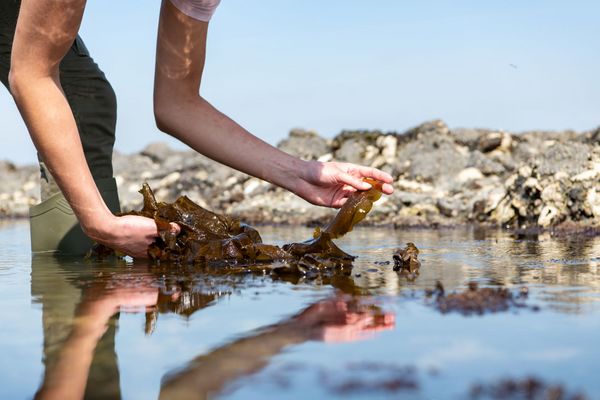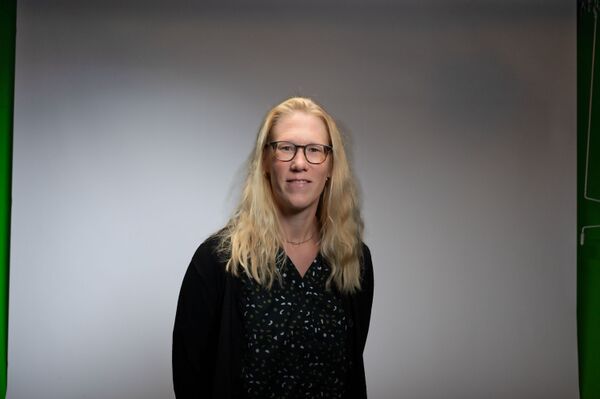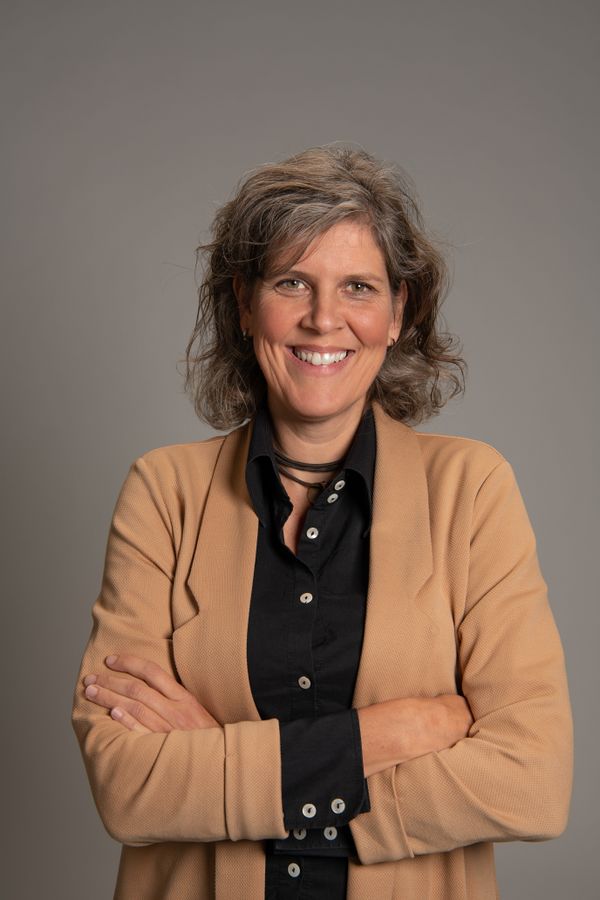RG 00014: verschil tussen versies
Geen bewerkingssamenvatting |
Geen bewerkingssamenvatting |
||
| Regel 4: | Regel 4: | ||
|Supercontext=Onderzoeksgroepen | |Supercontext=Onderzoeksgroepen | ||
|Name=Marine Biobased Specialities | |Name=Marine Biobased Specialities | ||
|Subheading= | |NameEn=Marine Biobased Specialities | ||
|Summary= | |Subheading=Mariene biomassa duurzaam toepassen | ||
|SubheadingEn=To use marine biomass sustainably | |||
|Summary=Het lectoraat Marine Biobased Specialties (MBBS) wil mariene biomassa en de stoffen die je hieruit kunt verkrijgen duurzaam toepassen in de transitie naar een bio-circulaire economie. | |||
Het | Het in 2017 opgezette lectoraat heeft nu nog Vlissingen als thuisbasis, maar zodra het Joint Research Center Zeeland (JRCZ) is opgeleverd verhuizen de onderzoekers naar het nieuwe onderzoekscentrum aan Het Groene Woud in Middelburg. | ||
Focus | |||
Het lectoraat is stevig verankerd in de Zuidwestelijke Delta en Zeeland in het bijzonder. “Met ons onderzoek willen we bijdragen aan de verduurzaming, kennisontwikkeling en het innovatievermogen in de regio. We richten ons op de transitie van de voedselketen en biobased toepassingen”, zeg onderzoeker Tanja Moerdijk. | |||
Marine Biobased Specialties innoveert rondom laag trofische biomassa, zoals (micro)algen en zeewier, waardevolle voedselproductie en biobased toepassingen. “Zeewier is een duurzame eiwitbron, maar wordt nog betrekkelijk weinig toegepast. Wij zijn goed in onderzoek naar smaak, wat heel specifiek is, geur en textuur van deze biomassa. Die kennis is belangrijk als je de producten wil verwerken en deel laten uitmaken van de voedselketen. Consumenten zijn nu namelijk nog niet overtuigd van de waarde van mariene biomassa. Ons onderzoek speelt daarbij een grote rol.” | |||
Als zeewier meer ingeburgerd raakt, wordt Europa ook minder afhankelijk van de import van eiwitrijke gewassen zoals soja. Marine Biobased Specialties wil helpen om de eiwittransitie hier vorm te geven en de regio daarmee nationaal en internationaal in de spotlights te zetten. Een derde punt waarop het lectoraat zich richt is het gebruik van mariene biomassa als grondstof voor biobased toepassingen. | |||
Het lectoraat werkt nauw samen met het bedrijfsleven en andere kennisinstellingen. Binnen de HZ is er een sterke band met de opleiding Chemie. “Als lectoraat voeden wij de opleiding met relevante casuïstiek, maar we proberen de studenten bijvoorbeeld ook ondernemersvaardigheden bij te brengen." | |||
|SummaryEn=The research group Marine Biobased Specialties (MBBS) aims to use marine biomass and the substances you can obtain from it sustainably in the transition to a bio-circular economy. | |||
The professorship, which was established in 2017, is still based in Vlissingen, but as soon as the Joint Research Centre Zeeland (JRCZ) is completed, the researchers will move to the new research centre at Het Groene Woud in Middelburg. | |||
Focus | |||
The research group is firmly rooted in the South-western Delta and Zeeland in particular. "With our research we want to contribute to sustainability, knowledge development and innovation in the region. We focus on the transition of the food chain and biobased applications", says researcher Tanja Moerdijk. | |||
Marine Biobased Specialties innovates around low trophic biomass, such as (micro)algae and seaweed, valuable food production and biobased applications. "Seaweed is a sustainable source of protein, but is still relatively little used. We are good at researching taste, which is very specific, smell and texture of this biomass. That knowledge is important if you want to process the products and make them part of the food chain. Consumers are not yet convinced of the value of marine biomass. Our research plays a major role in this. | |||
|Objective=Bijdragen aan | If seaweed becomes more established, Europe will also become less dependent on imports of protein-rich crops such as soya. Marine Biobased Specialties wants to help shape the protein transition here, putting the region in the national and international spotlight. A third point on which the professorship focuses is the use of marine biomass as a raw material for biobased applications. | ||
|Mission= | The chair works closely with the business community and other knowledge institutions. Within the HZ, there is a strong link with the Chemistry programme. "As a lectorate, we feed the course with relevant case studies, but we also try to teach students entrepreneurial skills, for example." | ||
|Imagename= | |Objective=Bijdragen aan de verduurzaming, kennisontwikkeling en het innovatievermogen in de regio | ||
| | |ObjectiveEn=Contribute to sustainability, knowledge development and innovation in the region | ||
| | |Mission=Mariene biomassa en de stoffen die je hieruit kunt verkrijgen duurzaam toepassen in de transitie naar een bio-circulaire economie | ||
|MissionEn=Uuse marine biomass and the substances you can obtain from it sustainably in the transition to a bio-circular economy. | |||
|Imagename=MBBS .jpg | |||
|Contact person=CNTR 00058 | |||
|HZ theme=Voeding,Water,Biobased, | |||
|Project=PR 00228 | |Project=PR 00228 | ||
}} | }} | ||



